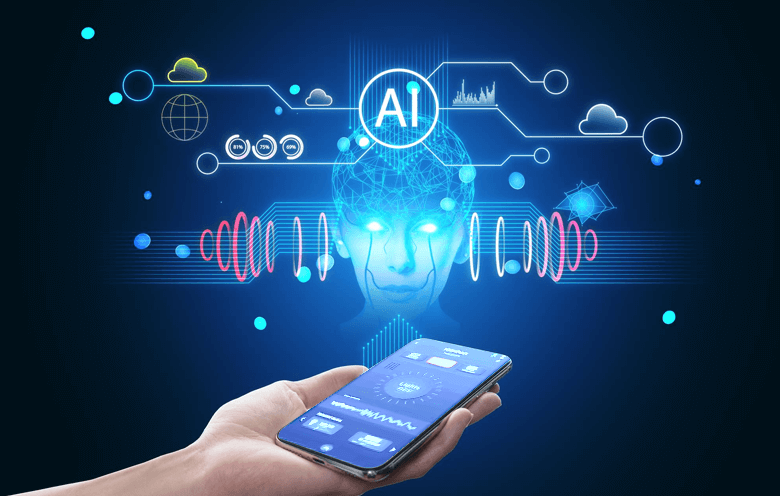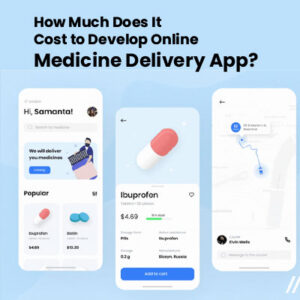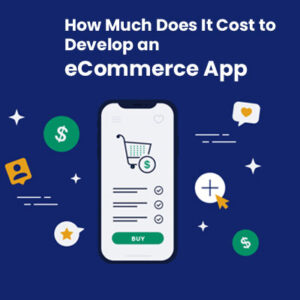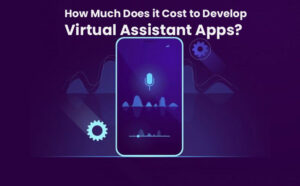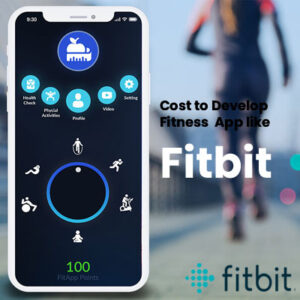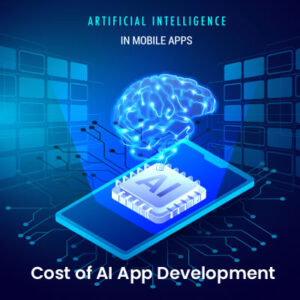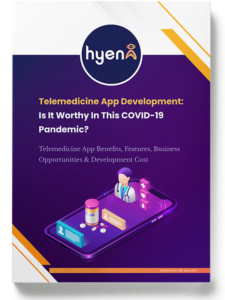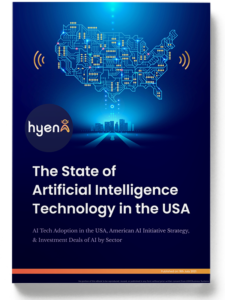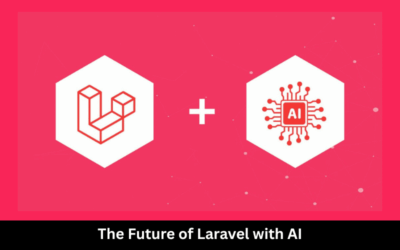How AI in Mobile Apps is Revolutionizing the Business Landscape?
How AI in Mobile Apps is Revolutionizing the Business Landscape?
Artificial Intelligence (AI) is transforming the mobile app development process because it is improving user experience, automating processes, and offering personalized services. With machine learning, natural language processing, and computer vision, AI enables mobile apps to analyze data, predict user behavior, and also provide content that is of value to the user. This article has covered information about how AI-enabled mobile apps are transforming the operations of businesses, opening opportunities for competitive advantage, and opening revenue generation routes.
Benefits Of Using AI in Mobile Apps Development
-
Enhancing Customer Experience Through Personalization
The most influential impact AI has had on the business world is allowing personal experience in engaging with clients. Its machine learning, NLP, and predictive analytics technologies make mobile applications more intelligent to analyze amounts of data in responding to customer behaviors and demands.
For example, retail and e-commerce organizations offer suggestions to customers on probable favorite products they might like based on AI-based mobile applications. The mobile application will provide suggestions based on user behavior, buying history, and browsing patterns. Such a high level of personalization will make the experience of the customer more relevant and interesting. Hence, it would generate an increase in conversion rates and customer satisfaction levels, which then eventually achieve loyalty towards brands. In addition, AI-based chatbots and virtual assistants, developed on mobile applications, enable companies to provide customers with real-time answers to questions while navigating customers to processes.
-
Operational Efficiency and Automation.
Artificial intelligence greatly improves the efficiency of the operation through automation and the standardization of routine activities. AI has been known for accuracy and speed through automating repetitive tasks, such as data entry, scheduling, inventory management, etc. Machine learning algorithms can also interpret a significant amount of information regarding the identification of inefficiency or bottlenecks that allow optimization in business processing. This therefore leads to lower operating costs, easier decision-making, and even a more agile business practice that will allow companies a competitive edge in the markets.
In manufacturing, AI-powered robots and predictive maintenance systems raise productivity and reduce downtime with the anticipation of equipment failure and automation of complex processes. By integrating AI into various operational areas, businesses can achieve higher levels of accuracy, efficiency, and scalability, which will, in turn, drive growth and innovation
-
AI for Data-Driven Decision Making.
AI-empowered mobile applications depend on data and help businesses make better-informed decisions from the insights derived. AI algorithms can run over huge volumes of data that analyze the behavior of customers engaged with a firm’s product and sales data from the numerous transactions it conducts, along with market trends and so much more for the advantages of the business.
For instance, with AI, companies will predict the preferences and buying habits of their customers, and therefore, it opens an opportunity for targeted marketing campaigns or adjustments of products. Similarly, AI-based mobile applications will track user behavior and pinpoint where friction is likely to occur with the customers, and companies can, therefore, improve their user interfaces and hence enhance customer satisfaction.
-
AI in Marketing and Customer Engagement.
AI in mobile applications has transformed marketing with its approach from traditional methods by using data-driven and very personal marketing strategies. AI-powered mobile apps can analyze the behavior of users and divide them into segments based on their interests, preferences, and demographics. This enables companies to target very specifically to their audience and enhances prospects of acceptance among people.
AI-powered mobile applications will optimize real-time marketing strategies, where a campaign would be adjusted in real time according to actual user engagement. Through the use of the click-through rate, coupled with data analysis evaluating its engagement and conversion rates, mobile applications through AI can allow businesses to decide on their approach towards marketing in more efficient ways.
-
AI Predictive Analytics and Future Forecasting.
One of the most powerful tools for businesses currently available is predictive analytics. It can be recognized for patterns from data for forecasting opportunities. By enabling companies to foresee trends and behaviors, AI significantly helps companies stand ahead in the competition.
For example, AI-based mobile applications can analyze the buying behavior of customers in the retail sector. Then businesses can optimize their inventory and avoid stockout or overstocking. Similarly, AI can predict seasonal fluctuations of demand, thus helping businesses create successful marketing strategies and promotional offers.
-
AI For Security and Fraud Detection.
AI mobile applications, maintaining an uninterrupted record of data and interaction, detect the risk in real-time, which is then mitigated before turning out to be risks. Thus, AI is one of the key reasons to make mobile applications more secure from cyber threats. AI can monitor the behavior of users and point out some unusual patterns that reflect fraud or a breach in security.
For instance, an AI-based fraud detection system in mobile banking applications will automatically flag any transaction and notify them for review before the damage control can happen. Similarly, authentications based on AI are also coming into place through facial recognition or biometric scanning in mobile applications to enhance security and prevent hacking further into the user’s data. This will avoid business losses but at the same time build up the level of trust and interaction among customers with an app that prioritizes customer safety and privacy.
-
AI Transforms Customer Support and Service.
AI is changing customer support and service as it allows the company to deliver faster and more efficient, personalized assistance to the customers. Companies use AI-based chatbots and virtual assistants that can reply instantly to a customer query, provide a solution for a problem, and take a customer through lengthy procedures without the need to engage a human.
All of these are built using NLP so that they can understand and work with the customers in a conversational way. AI tools will continue learning from the interactions they have had and therefore improve over time in terms of solving issues, answering questions, and providing support in a customized manner. In this regard, constant improvement will ensure that customers enjoy high-quality service 24/7, which would improve their experience.
-
AI in Personalized Healthcare Services.
Artificial intelligence in mobile applications is changing the delivery of care to patients, management of health, and communication with the provider through healthcare. Healthcare AI applications can do all sorts of things, such as detecting vital signs, diagnostics, and personally recommended treatments.
AI will also facilitate the review of medical records and thus enable healthcare providers to produce more efficient and better diagnostic results. This would equip patients with information on symptoms, treatment options, and wellness counseling through virtual health assistants in mobile apps based on AI.
Conclusion
AI in mobile applications transforms the business environment by adopting innovation, improving the customer experience, and optimizing the operations. From making the interactions personalized and process automatic to insights for improvements based on data analysis, it empowers businesses to cope with increasingly demanding customers in a better and more accurate way.
With AI technologies within mobile applications, such as machine learning, natural language processing, and predictive analytics, it has better positioned companies to fight the changing marketplace. In this regard, with advancements in AI, the contribution it will make to mobile app development will be much deeper and open up avenues for connecting with more customers, smoothing out processes, and catapulting growth.
